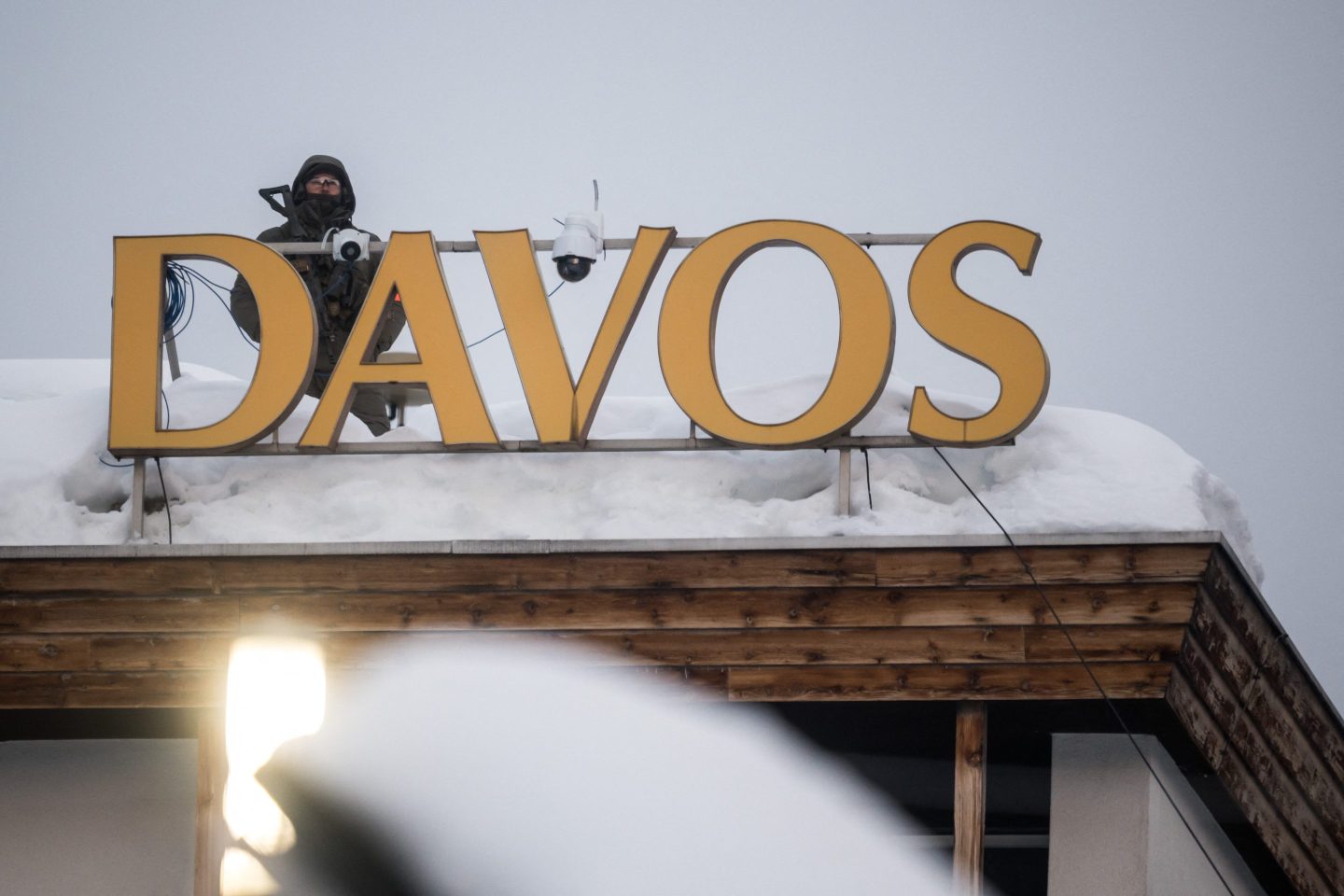Hi, it’s tech editor Alexei Oreskovic. The world’s bigwigs are convening in Switzerland this week for the World Economic Forum in Davos, and by the looks of it, the confab has turned into an AI conference.
One of the four main themes of the event is “Artificial Intelligence as a Driving Force for the Economy and Society.” More than two dozen sessions at the event are focused directly on AI by the New York Times DealBook’s count, discussing everything from AI in education to AI ethics and AI regulation. There’s even a session about AI “hard power” in geopolitics.
Emissaries of the AI sector are there, rubbing shoulders with world leaders and speaking on panels. Sam Altman, the 38-year-old cofounder of OpenAI will be there. As will Meta AI boss Yann LeCun, Inflection cofounder Mustafa Suleyman, and AI pioneer Andrew Ng, among others.
The tech industry has long had a large presence at Davos, with Bill Gates, Marc Benioff, and Meta CEO Mark Zuckerberg among the regular attendees. But AI has taken over the conversation at an unprecedented pace, attracting staggering amounts of capital, and provoking both wonder and fear.
As Business Insider notes in a report, Altman has to make the case to policymakers at Davos that AI won’t repeat the mistakes of social media when it comes to spreading election misinformation. On Monday, OpenAI published a blog post outlining its gameplan for the various elections taking place in 2024, including the U.S. presidential elections.
The energy consumption required by AI is another important issue. The transition from carbon-emitting fossil fuels to sustainable energy has been one of the key topics of discussion at Davos for years. And according to Reuters, Altman acknowledged on Tuesday that artificial intelligence is consuming far more energy than people expected and said a “breakthrough” in energy was needed (including nuclear fusion, a technology that Altman has invested in himself).
Here’s what else is going on in tech news today.
Alexei Oreskovic
Want to send thoughts or suggestions to Data Sheet? Drop a line here.
NEWSWORTHY
Software acquisition. Electronic design automation company Synopsys is acquiring software firm Ansys in a deal valued at $35 billion, the companies announced on Tuesday. If shareholders and regulators approve, the deal will close in 2025.
Apple v. Epic. The Supreme Court has refused to hear appeals in the case between Apple and Epic Games about Apple’s App Store dominance, Bloomberg reported. The decision could loosen Apple’s grasp on its app store and cost the company billions of revenue each year.
Drizly down the drain. Uber is closing its alcohol delivery service Drizly three years after acquiring it for $1.1 billion, Axios reported. Booze sales will continue through Uber Eats, which already delivers alcohol products in 35 U.S. states and 25 countries.
IN OUR FEED
“You don’t seem to understand that Tesla is not one startup, but a dozen.”
—Tesla CEO Elon Musk said on X, the platform he owns formerly known as Twitter, about wanting 25% voting control, despite owning only 12% of the company. If that does not happen, he said he would rather build AI and robotics products outside the company.
IN CASE YOU MISSED IT
With carmakers in a ‘state of shock’ over Tesla-beating BYD’s prices, EU investigators will visit China’s EV giants as part of an anti-subsidy probe, by Steve Mollman
Apple offers a rare $70 discount on the iPhone 15 in China as competitors from Huawei and Honor eat into its market share, by Lionel Lim
AI’s impact and lack of coordinated regulation ‘could change the course of history not necessarily for the good’, warns Swiss banking watchdog, by Prarthana Prakash
Google’s SVP of research, technology and society: ‘People understand that AI will disrupt their lives–but they hope it’s for the better. We must not let them down’, by James Manyika (Commentary)
Apple is moving an AI team from San Diego to Austin. Most of them are unwilling to relocate, by Mark Gurman and Bloomberg
BEFORE YOU GO
OpenArmy. OpenAI has quietly removed wording in its usage policy that prohibited the use of its technology, including ChatGPT, for military purposes, The Intercept reported. The new language still bans the use of its service to “harm yourself or others,” but the explicit veto on “military and warfare” use has been deleted. The rewording may allow OpenAI to branch into defense technology.
This is the web version of Data Sheet, a daily newsletter on the business of tech. Sign up to get it delivered free to your inbox.













